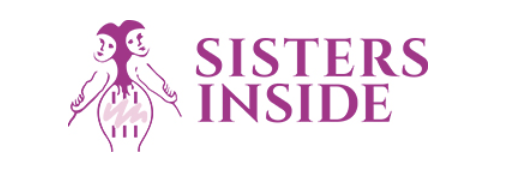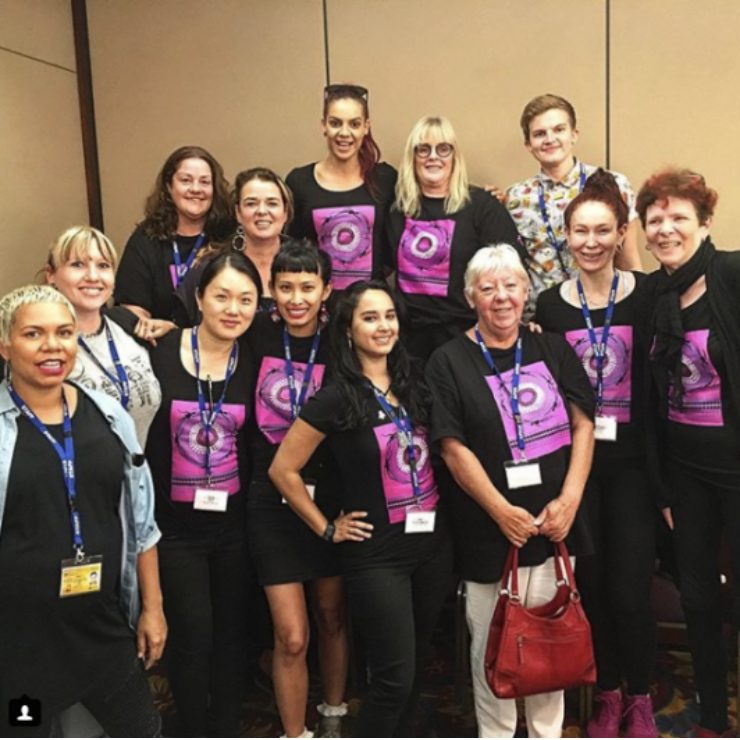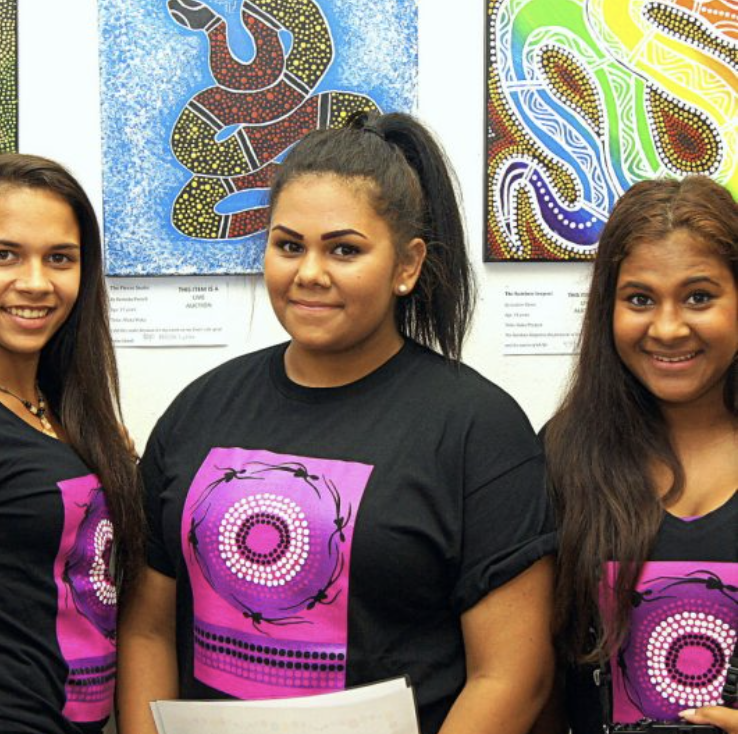SEQ Programs
Services for Women Prisoners
Sexual Assault Program – The vast majority of women prisoners have lived with violence – with most having experienced childhood and/or adult sexual assault. When Sisters Inside was first established, women prisoners identified sexual assault counselling and support as their highest priority need whilst in prison. Our first funded program, this service was established in 1994. Since then, Sisters Inside has continuously had 2 full time sexual assault workers providing counselling and support in all women’s prisons in SEQ. This program is highly successful and has supported over 3,500 women prisoners.
Supreme Court Bail (SCB) Support Program – Approximately 40% of all women prisoners in Queensland are on remand, with many being refused bail due to homelessness or lack of community mental health services. Sisters Inside has supported eligible women to apply for Supreme Court Bail since 2003 – initially as an unfunded program (jointly with UQ legal students and graduates), then since 2016 as a funded program. Our SCB Worker interviews women in all SEQ prisons to assess their eligibility for Supreme Court Bail, supports eligible women to make application to the court, and is available in court to provide advocacy and support. Other Sisters Inside workers often help women to make arrangements to apply for bail (e.g. access to housing or health services) and offer support following release. Since 2003, the program has had a 100% success rate amongst eligible women.
Parole Support – Many women stay in prison beyond their parole date. This service supports women in all SEQ women’s prisons in relation to parole and sentencing matters. Established in 2019, the service ensures that women can address their post-release needs whilst in prison; leave prison as soon as possible; and successfully stay out of prison following release. This includes helping women to navigate the corrections system – assisting with their parole applications, arranging accommodation and other essentials for getting parole, advocating directly with the Parole Board, explaining the parole process to women, and helping women follow up parole applications or rejections. We also support women who breach parole and respond to parole suspensions.
Services for Women on the Outside
Health Support Program (HSP) – Criminalised women have poorer health than women in the general community, with many living with chronic health conditions and complex health needs. Our HSP Workers offer support to improve the health and wellbeing of criminalised women and their children. We work alongside women to identify their health needs; provide referral to medical, mental health and drug and alcohol services and practitioners; and provide the practical support they need to attend appointments (e.g. transport). We also support women to improve their social and emotional wellbeing (e.g. assistance with housing, employment or income support). The HSP particularly focuses on supporting women in the first month after their release, and working with women with complex health needs. Since 2017, we have had two HSP Workers based in Brisbane (covering SEQ).
Decarceration Program – This program aims to reduce the number of women in prison, particularly on remand, throughout SEQ. Since early 2019, Our 3 Decarceration Workers have supported women being held in police watch-houses and/or appearing in court to improve their likelihood of a successful bail application. This includes ensuring women’s access to suitable and stable housing, legal representation, community-based services and support. We also offer advocacy with police, court authorities, prosecutors, defence lawyers, prison authorities to optimise the likelihood of a successful bail application. They may also provide post-release support via outreach to enable women to continue to meet their bail (or parole) conditions.
Services for Mums & Kids
BOWS (Building On Women’s Strengths) Program – The majority of women prisoners were sole parents of dependent children before imprisonment. Our 2 BOWs Workers in SEQ are dedicated to helping mothers in prison maintain their relationship with their children, and supporting family reunification post-release. Whilst mum is in prison, we help arrange contact with their children (e.g. through bringing the children to the prison for visits, or negotiating with child safety authorities). We support mothers as they plan for release to ensure that their children’s practical and emotional needs will be met. Following release, our BOWS Workers provide intensive support for women and children in rebuilding their lives after the trauma of prison. This includes activities to help women and their children to reconnect and build on their strengths as mother and child, including camps. We continue to support mothers for as long as they wish.
Child and Parenting Support (CaPS) Program – Children are often traumatised by the process of arrest and/or enforced separation when mum went to prison: as a result, many develop difficult behaviours and are harder to parent following their mother’s release from prison. Some children are taken into care when their mother goes to prison, and their mum needs to learn about dealing with the child protection system and/or non-residential parenting. Our CaPS Worker provides intensive support, often in their own home, to a small number of women wanting help to improve their parenting skills and/or respond more effectively to their children. We also run parenting education and peer support groups (with child care provided).
Services for Young People
Crucial Connection (Reconnect) Program – As they become teenagers, children who have been impacted by the adult or youth prison systems need a different type of support. Since 2001, our workers in Brisbane have supported many 12-18 year olds whose mother is in prison or who are themselves criminalised and at risk of homelessness. Our Reconnect Workers focus on improving young people’s connection with their mother, extended family, work, education, training and their community. This includes providing family and individual counselling and support for young people, their mothers and families. We advocate for young people and their families with prison authorities, government, the community and non-government organisations, when this is needed. We also run activities such as sport/dance groups, art groups or camps which encourage peer support amongst young people.
Yangah Program – Approximately 80% of children in prison are on remand. This program aims to reduce the number of 10 – 17 year old girls being held on remand in the Brisbane Youth Detention Centre (BYDC) and/or police watch houses in the Greater Brisbane Area. Our 2 Yangah Workers improve the likelihood of a successful bail application, through ensuring girls’ access to safe, secure accommodation; community-based services and support; legal representation; and individual and family support. We can liaise (with girls’ permission) with Youth Justice case workers. Yangah also provides post-release support via outreach to enable girls to continue to meet their bail conditions, and builds relationships with girls in BYDC through a regular art group. The Yangah Program has been running since 2018.
Youth Skills Program – Overall, this program aims reduce the number of young women living in poverty through improving their ability to get a job. Since 2018, Youth Skills has worked with criminalised, particularly Aboriginal and Torres Strait Islander, young women aged 15-24 in Brisbane. The Youth Skills Worker helps each individual young woman to work out her interests and address the issues that make it hard for them to engage with employment, education or training. The program offers a Certificate II in Hospitality, and the Worker attends the course alongside participants, assists each young woman to complete course requirements, and offers opportunities for work experience and/or employment through Barista Sistas or other women-friendly (particularly Aboriginal) businesses.
Barista Sistas – Our first social enterprise project, Barista Sistas, began trading in November 2018. This coffee cart is open Monday to Friday mornings (starting early) outside the Sisters Inside offices at 326 Montague Road, West End in Brisbane. It provides an opportunity for Youth Skills participants (and sometimes older women) to gain work experience and build their confidence to enter the workforce. Small grants and donations enabled SIS to establish Barista Sistas coffee cart and provide barista training for young Aboriginal women.
First Nations Girls’ Art Group – Another unfunded Sisters Inside service, this weekly art group for Aboriginal and Torres Strait Islander girls has been running since 2009. All girls and young women who are criminalised, or at risk of criminalisation, are welcome to join the group and attend as often as they like. Girls affected by their mother’s criminalisation typically ‘graduate’ from our BOWS Program at age 12. The Art Group has generally been funded through donations, with Reconnect Workers providing assistance (e.g. transport) and support to enable young women and girls to participate. Sisters Inside holds an auction of the girls’ art work once or twice each year, with the proceeds going toward a significant group activity for participants (e.g. a trip to the Great Barrier Reef).
View our other Programs & Services
How can you help?
The Sisters Inside Fund for Children supports children of women in the criminal justice system to choose their own future free of the burdens so commonly felt while their mother is in prison.
#Free Her Campaign
This campaign has been set up by Debbie Kilroy, CEO of Sisters Inside Inc. The funds raised will be used to release people from prison and pay warrants so they are not imprisoned.



